Clipart tagged: ‘wagons’
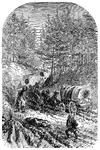
Federal Baggage Train
"Federal baggage train on its way to the army at Falmouth, VA., December, 1862. Our illustration represents…

Baggage Train Wagon
"Federal baggage train on its way to the army at Falmouth, VA., December, 1862. Our illustration represents…
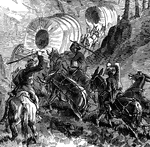
Baggage Train to Falmouth, VA
"Federal baggage train on its way to the army at Falmouth, VA., December, 1862. Our illustration represents…

Village of Clarksburg
"Village of Clarksburg, Western Virginia, headquarters of General Rosecrans. Clarksburg, a post village,…
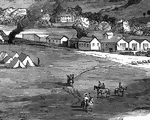
Village of Clarksburg
"Village of Clarksburg, Western Virginia, headquarters of General Rosecrans. Clarksburg, a post village,…
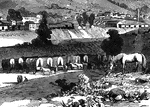
Village of Clarksburg
"Village of Clarksburg, Western Virginia, headquarters of General Rosecrans. Clarksburg, a post village,…

Grand Skedaddle
"The 'Grand Skedaddle' of the inhabitants from Charleston, S. C., when threatened by an attack from…
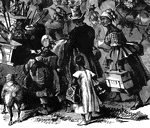
Grand Skedaddle - Families with Luggage
"The 'Grand Skedaddle' of the inhabitants from Charleston, S. C., when threatened by an attack from…
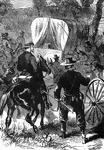
Grand Skedaddle - Detail of Wagons
"The 'Grand Skedaddle' of the inhabitants from Charleston, S. C., when threatened by an attack from…
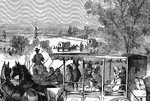
Grand Skedaddle - Horse-drawn Carriage
"The 'Grand Skedaddle' of the inhabitants from Charleston, S. C., when threatened by an attack from…
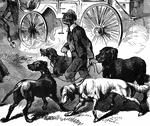
Man Walking Dogs
"Man walking dogs in the 'Grand Skedaddle' of the inhabitants from Charleston, S. C., when threatened…

Stagecoach and Prairie Schooner
"Modes of travel in the West. An old stage-coach and prairie schooner." -Gordy, 1916

Battle at Willis Church
"Battle at Willis Church, Monday, June 30th, 1862- the Federal forces, under General Heintzelman, engaged…
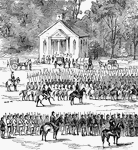
Battle at Willis Church
"Battle at Willis Church, Monday, June 30th, 1862- the Federal forces, under General Heintzelman, engaged…

